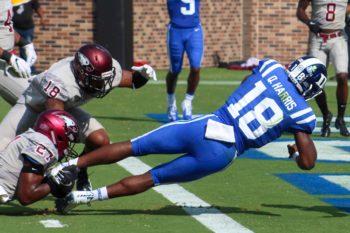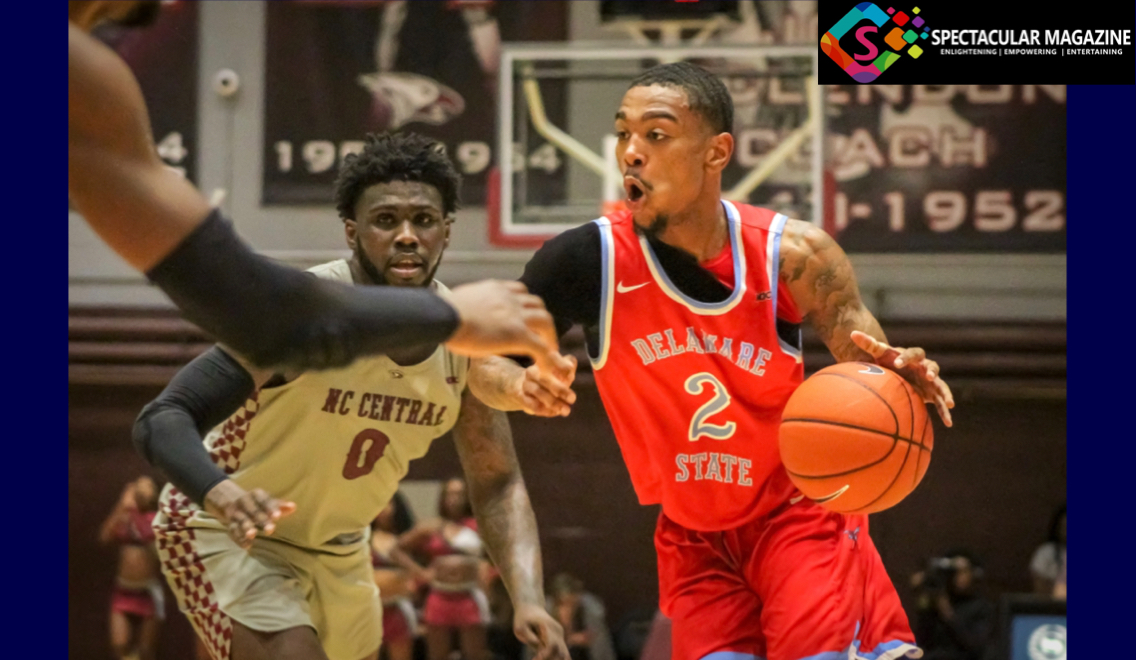HBCUs Gaining Equity in the NCAA: a Conversation with Dr. Joseph Cooper
Several hot-button issues arose in sports last week. At the center of it all: equity.
The NCAA amended the “Rich Paul Rule” seven days ago, Aug. 12. The rule required agents who wished to represent college basketball players testing the NBA Draft to have a bachelor’s degree.
Just a day later, Aug. 13, the NFL announced a social justice partnership with Roc Nation, which was founded by rapper, and mogul, Jay-Z. The deal gives Roc Nation the authority to select artists for NFL performances such as the Super Bowl.
The eyebrow-raising deal sparked controversy, because Jay-Z partnered with a league that he once criticized for ousting former NFL player and activist Colin Kaepernick after kneeling during the national anthem to raise awareness for police brutality.
The University of Louisiana at Lafayette head football coach Billy Napier announced on Wednesday, Aug. 13 that he will require all scholarship football players to donate at least $50 per year to the athletic booster club, the Rajin’ Cajun Athletic Foundation.
The situations above show that equity is fairness. Equity is complex
But, it’s not universal.
University of Connecticut Assistant Professor Dr. Joseph Cooper, who is a leading scholar in the intersectionality between sport and race, and the author of From Exploitation Back to Empowerment: Black Male Holistic (Under)Development Through Sport and (Mis)Education, spoke with Spectacular Magazine in June about HBCUs gaining equity in the NCAA.
Here are the highlights.
Severe Economic Deprivation
“When many of these Power Five schools were established,” said Dr. Cooper, “black students and black schools did not have access to the same type of wealth and resources. So, we’re generally familiar with slavery, but we don’t fully understand the massive amounts of wealth that were pumped into white-owned institutions.”
According to a tweet by Kyle Serba, the Director of Sports Information at North Carolina Central University, the University of Georgia Athletics Department’s budget of $153.9 million for the 2019-20 season could fund NCCU athletics for 13 years.
“If they’re (the NCAA) trying to be leaders in equity, in sports and in society,” Cooper said, “then they definitely could step in and propose different revenue sharing plans that would allow for more equity to exist. … There are creative ways in which you could reallocate that money to do that, but it would take commitment in terms of leadership to do that.”
Georgia’s new annual athletics budget of $153.9 million for the 2019-20 season could fund NCCU athletics for the next 13 years! https://t.co/RcA7G3djVp
— Kyle Serba (@KyleSerba) May 24, 2019
Stop Comparing Apples and Oranges
The Atlantic Coast Conference (ACC), Big 10, Big 12, Pac-12 and Southeastern Conference (SEC) make up the Power Five, or the in-crowd, who generate the most revenue and have the biggest brands.
“It’s not like those schools were playing fair from the beginning,” Cooper said, “So, it’s not like we’re comparing apples to apples. Those schools have benefitted from exploiting black labor, not only through chattel slavery in terms of how these institutions acquired wealth to build the schools, but also in terms of the athletic talent that has been generating millions and millions of dollars for them.”
This welded the false notion that Power Five schools are more athletically superior than limited-resource institutions. Dr. Cooper believes that HBCUs and Power Five schools would perform at comparable levels if given the same caliber athletes. However, many college prospects equate more resources and visibility with a higher chance of matriculating to the professional ranks.

Solutions?
“It sucks,” Dr. Cooper said, “because we do live in a system that’s: white racism and capitalism. So, it’s been designed that we’ve been systematically excluded from acquiring certain types of wealth.”
Playing in the NCAA Tournament and bowl games are vital for the pulse of any athletic program. However, continually missing money games harm limited-resource institutions far more, hence the reason why Savannah State University moved down to Divison-II after competing in Division-I, FCS, Middle Eastern Athletic Conference (MEAC).
Dr. Cooper believes two best solutions for HBCUs gaining economic equity are black players leveraging their own power, and HBCUs monetizing their brand. The first solution is far-fetched because black players at Power Five schools would have to put their necks, and futures, on the line.
That’s a lot to ask of 17 to 23-year-olds.
The second solution is best; however, breaking off from the NCAA, and starting a new league, may cause NCAA retributions.
But, should HBCUs care?
In a scholarly article, Dr. Cooper and his colleagues Dr. Jafus Kenyatta Cavil and Dr. Geremy Cheeks suggested that “HBCUs across Division I, Division II and even the NAIA essentially create a league that is based on common mission,” Cooper said.
“And essentially take what the football classic(s), and the CIAA tournament, the Celebration Bowl and really kind of bolster (the events). There are a lot of corporate partners, a lot of consumerism, related to HBCU athletics; and essentially, create a league where the rules are designed to better fit the unique purposes and missions of HBCUs as opposed to being in the NCAA where they are largely marginalized.”
(Feature image courtesy of Landon Bost)


